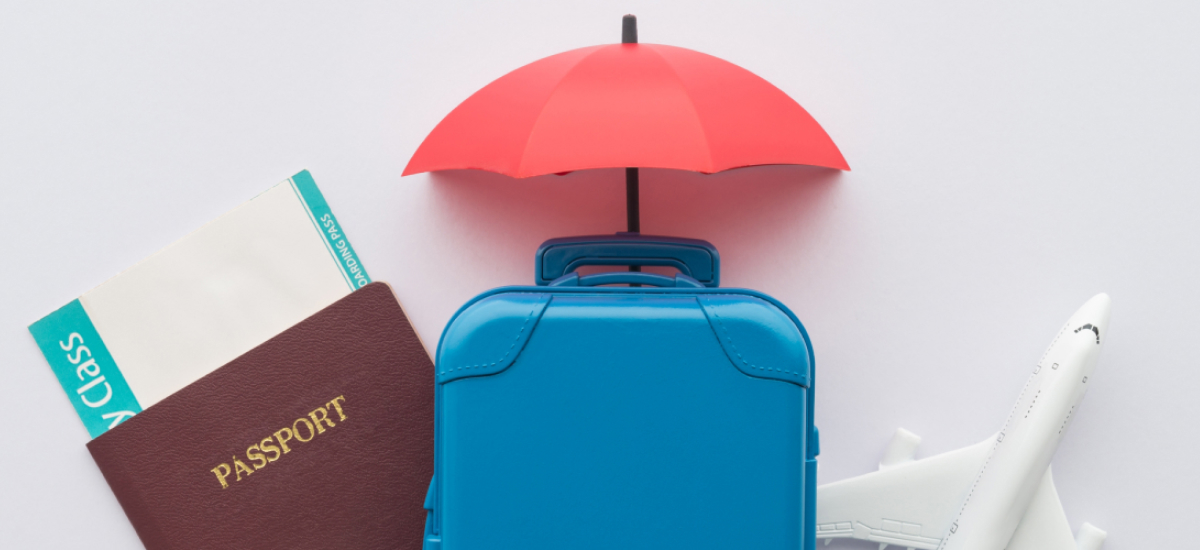Picture this: two travellers, on the same flight, with the same destination. Yet, their travel insurance premiums differ. Why? Your travel insurance premiums are not just about your destination, but they’re about you.
Several factors, such as your age, health, travel purpose, and trip duration, influence the price you pay. Simply put, your travel insurance is not a one-size-fits-all. Instead, it’s a personalised safety net, priced based on how risky your journey looks to the insurers.
Top Things that Affect Your Travel Insurance Policy
Here is a list of factors that help the insurer determine your travel insurance premiums.
1.Destination Plays a Big Role
When you're planning to buy a travel insurance policy, the destination plays a bigger role than you think. Why, you may think. Well, there are several reasons. For instance, some destinations are viewed as more risky than others, considering factors such as crime rates, political stability, and geopolitical scenarios.
Additionally, destinations with a majority of their healthcare system privatised can raise the cost of medical treatment, ultimately increasing the price of travel insurance premiums. For instance, travelling within Asia can mean lower premiums because of more affordable healthcare compared to travelling in New York.
If you love travelling and frequently visit multiple destinations, consider a multi-trip policy. They are more cost-effective and allow you to cover multiple destinations during a specific period.
2. How long are you staying?
You also need to consider the duration of your stay when you buy travel insurance. The reason is simple. Insurance premiums are based on the principle of exposure. This means the shorter your stay, the lower the chances of claims. Alternatively, the longer you plan to stay abroad, the higher the chances of risks, such as medical emergencies, baggage loss, trip disruption, and more.
This is exactly why staying abroad for 7 days can be cheaper to insure than planning a 3-month staycation. Also, increasing your trip duration can increase your premiums, too. Consult your insurer regarding the same.
Be precise with your trip duration. Do not assume or buy extra days for just in case scenarios.
3. How Old Are You?
One of the key factors influencing policy premiums is your age. Your age plays a big role in calculating the protection cost. This works on a general understanding. For instance, a younger traveller aged 28 years old is typically less likely to encounter medical concerns during their trip due to their age and lifestyle. Alternatively, older citizens, such as those aged 65, typically require better and more medical attention and support. This leads insurers to charge high premiums to balance the potential risks.
For senior citizens aged 60 or above, consider looking for senior citizen travel insurance plans. At Generali Central, we offer comprehensive benefits, better hospitalisation cover, emergency evaluation, and much more.
1. What is Your Medical History?
Your medical history or pre-existing conditions are important for your insurer. Typically, some insurers might cover these conditions and charge a higher premium. Although others may cover your travel, they may exclude certain conditions. Please consult your insurer regarding this matter.
Also, always make sure you clearly disclose your medical concerns. Hiding or lying may result in claim rejections. It is better to disclose your medical concerns, even if it results in a slightly higher premium, because you will receive full coverage and peace of mind.
2. What Is the Purpose of Your Travel?
Why are you travelling? What is the purpose of your trip? The purpose of your travel decides the level of risk. For example, in cases, it’s a regular family holiday, standard cover seems nice. However, if your trip includes adventure activities such as skiing, diving, or trekking, the risk is higher. Consult your insurer regarding the premiums. It might vary accordingly.
If you're planning to add adventure to your travel insurance policy, consider adding an adventurous sports rider. A small investment can help you save significantly in the event of unexpected events.
3. How Much Coverage Do You Need?
Understanding the benefits and coverage of your travel insurance policy is also important. Say you buy a comparatively cheaper travel plan, but it's important to evaluate if it covers exactly what you need.
Choose a travel insurance plan that offers comprehensive benefits. You may look for benefits like medical emergencies, trip cancellations, flight delays, baggage theft or loss, etc. This way, you might have to pay a slightly higher premium; however, you ensure you have adequate coverage.
Do not compromise the essential covers. Add adequate riders to make your travel policy more complete and better suited to you.
4. How Many Travellers Are Being Insured?
The type of travel insurance you're planning to buy also affects your policy premiums. For instance, family floater plans are typically more cost-effective than individual travel policies.
Do not choose travel insurance simply because it's cheaper. It's better to compare the benefits. See the benefits of individual travel insurance and family floater travel plans, and make a decision accordingly.
5. What About Policy Add-Ons & Customisations?
The best travel insurance is the one that meets your needs and requirements. And add-ons help you with that. Simply put, these are like your pizza toppings. They add more flavour and enhance your travel insurance by customising it to your needs.
For instance, travellers planning adventurous activities can opt for sports riders that cater to their adventurous spirit. There are other riders as well, like COVID-19 cover, critical illness cover, trip extension, etc. Remember, adding these customisations may increase your travel premiums, but it means better protection too.
Choose your add-ons carefully. Do not just add riders because your friends or relatives have done it. For instance, if you are a backpacker, adding a trip cancellation and baggage loss cover can help.
6. Your Claim History & Risk Profile Also Matter
Your claim History is also assessed to check your risk profile. Generally, for an individual filing multiple claims, the insurance company categorises them as high risk. Ultimately, in some cases, this may result in higher premiums or restrictions on your coverage limit. Try keeping your claim record clean and well-maintained. This helps keep your long-term premiums lower.
Click here to read more about important questions you must be asking before buying travel insurance.
Wrapping Up
Your travel insurance is not simply about buying the cheapest policy. The best travel insurance is one that balances protection and affordability. Your insurance premiums are also not random; rather, they are calculated based on a variety of factors that revolve around you and your lifestyle. Before purchasing travel insurance, consider assessing the risks and available add-ons.























